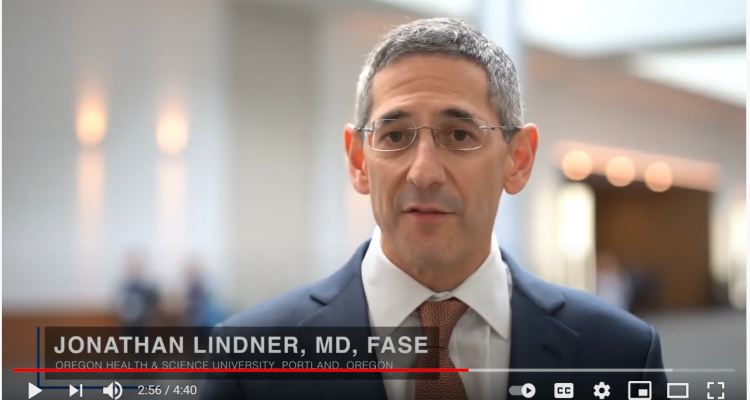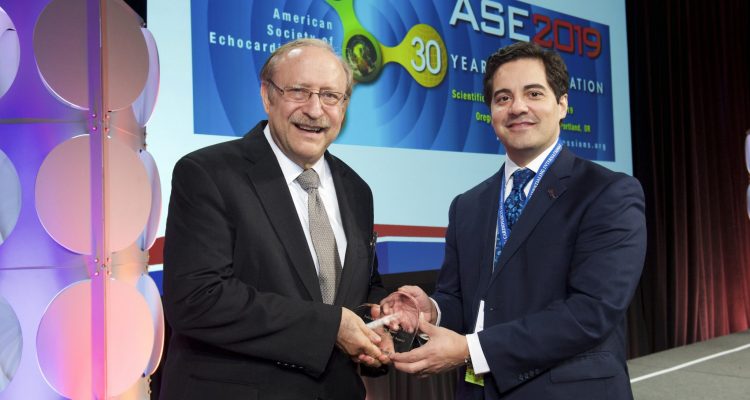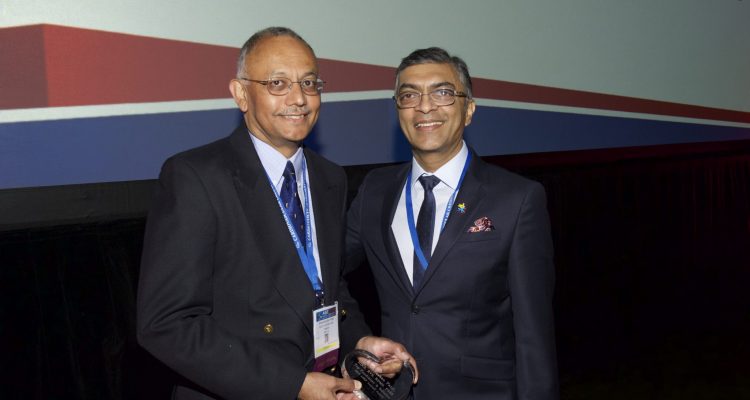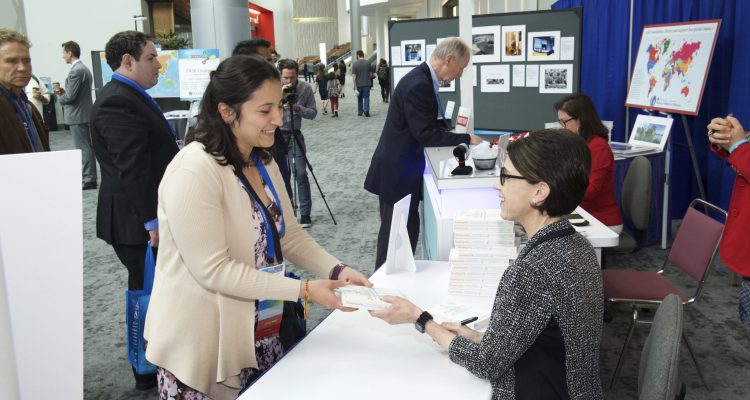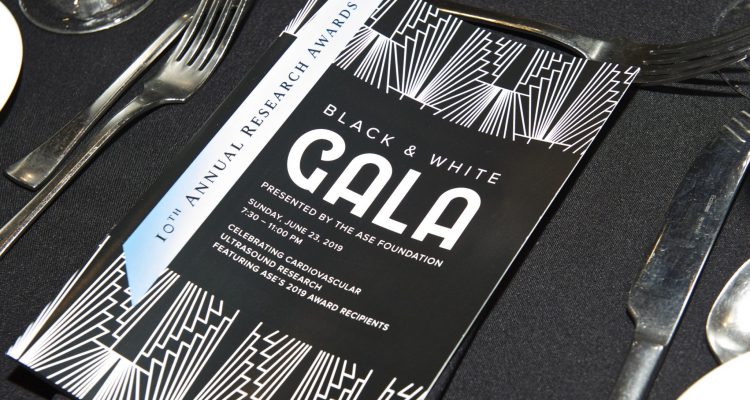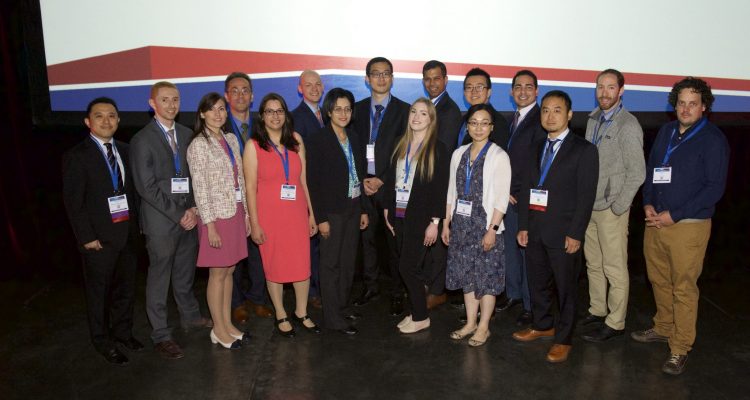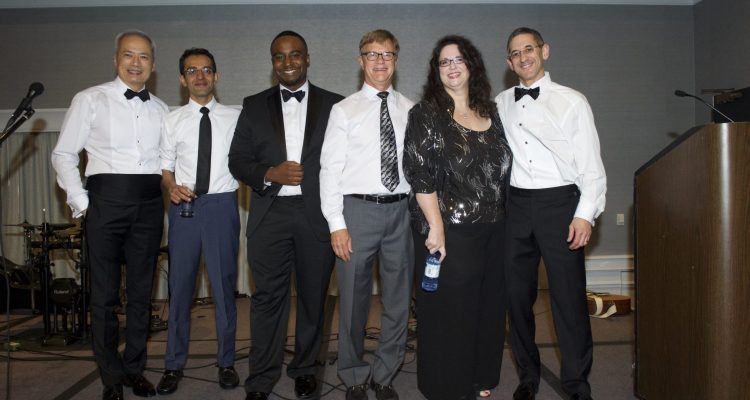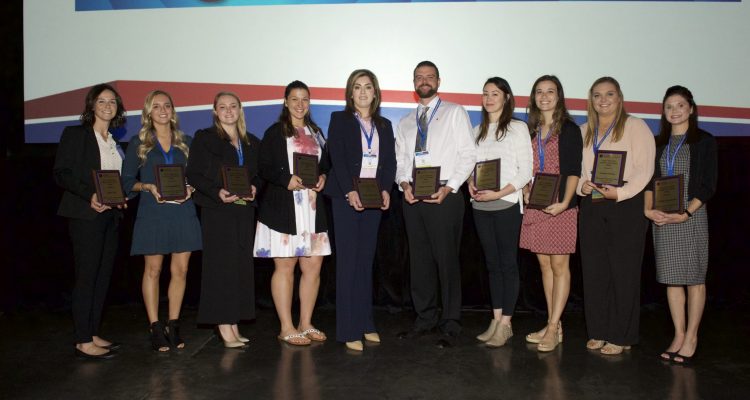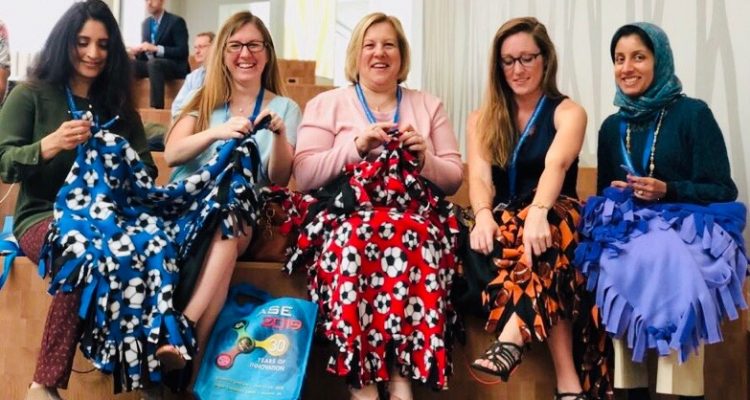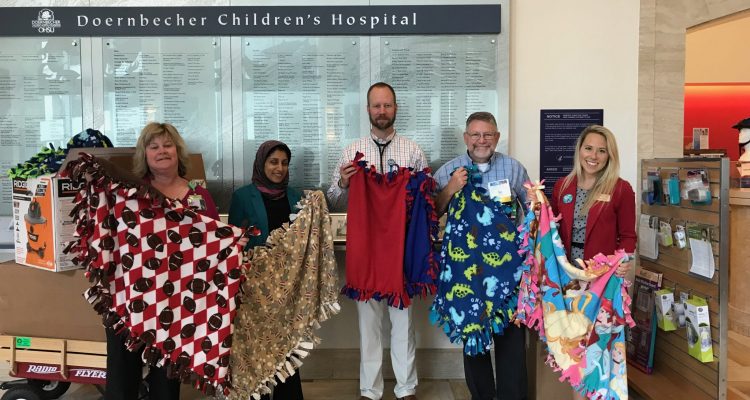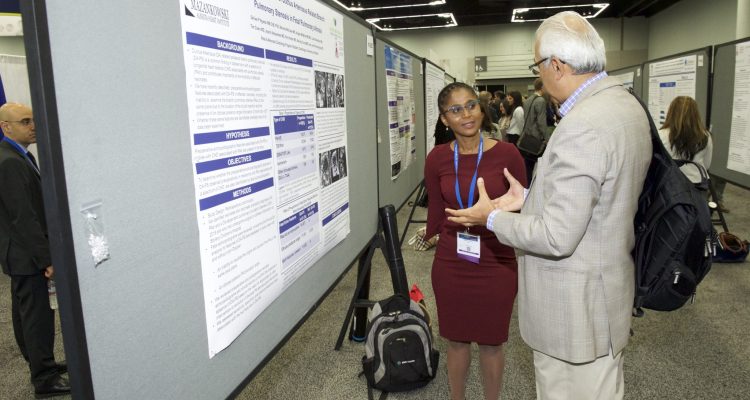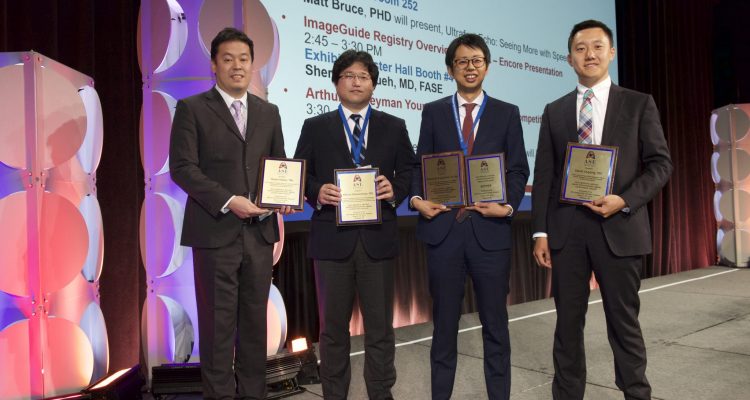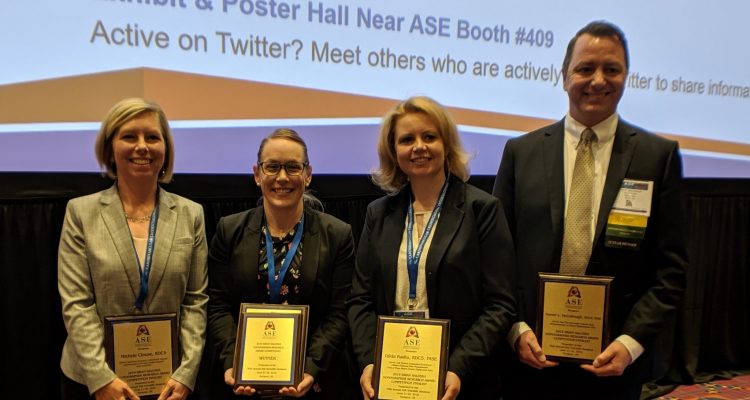Funding Opportunity Description/Purpose
**Enter the Submission Portal Here**
The ASE Education and Research Foundation invites applications for innovative and meritorious echocardiographic research proposals relevant to the value of echo-guided procedures in interventional care and its impact on patient outcomes. Of particular interest are proposals that provide comparative or demonstrative evidence of the key role echocardiography plays in cardiac and/or vascular surgical, catheter-based or device-placement related procedures (e.g., appropriateness, outcomes, cost effectiveness, comparative benefit).
Funding available: Up to $50,000 is available for one grant for one year.
Key dates:
October 31, 2017 – Deadline for submission
Mid-December 2017 – Notice of funding
Eligibility Requirements
Applicant: All applicants must be a current ASE member and hold a valid appointment at the institution where the research will be conducted. In addition,
Physician/Scientist Applicants: Physician/scientist applicants must have either a research or health-professional doctoral degree of MD, PhD, or the equivalent. At the time of application, physician/scientist applicants must be current fellows or first year faculty (within first year after fellowship completion).
Non-physician Applicants: Non-physician applicants must have a current echocardiography or cardiovascular ultrasound professional credential, with echocardiography certification from ARDMS or CCI, or an equivalent international sonography certification. They should also be serving in a research sonographer capacity and/or be Advanced Cardiac Sonographer (ACS) eligible.
Senior Mentor/Project Sponsor: Applicants must identify a professional ASE member as their senior mentor/project sponsor and provide a letter of support from that individual. The senior mentor/project sponsor must hold a valid appointment at the institution where the research will be conducted and have a track record of high quality clinical investigation.
Institution: It is expected that appropriate in-kind contributions from the applicant’s institution will be provided to ensure that protected time and appropriate resources will be allocated to the applicant to permit completion of the project within the one-year funding period. A letter of support is required from the applicant’s division chairman and/or laboratory administrator attesting that if funding is awarded, the recipient will be given protected time and appropriately excused from clinical and administrative duties to the extent that the grant funding is proportional to their existing salary.
Recipient: The recipient is expected to have scientific responsibility for the conduct of the proposed research if funding is awarded, and to participate in future ASE/ASEF educational meetings and events to present the final results of his/her work if so invited. Ongoing submission of abstracts of the research work in progress to ASE meetings for presentation consideration is expected.
Accepting funding from the ASE Foundation constitutes a commitment by the grant recipient, his/her co-investigators, and the academic institution to:
- Complete the project and produce meaningful results within both the designated time period and the budgeted funds provided.
- Submit a six-month progress report to the ASE Research Committee, and participate in the committee’s June 2018 meeting to answer questions regarding the project’s progress and funding utilization.
- Submit a final report outlining the project’s final results and funding utilization. It is expected that final project results will be presented at the ASE 2019 Scientific Sessions in Portland, Oregon.
- Return any unexpended balance of the grant funding at the end of the funding period.
- Include acknowledgement of this funding in all future publications, press releases, other documents, and presentations that cite results from this project.
Application Requirements
Proposals are to include the following elements –
1. Title of the proposed project.
2. Summary of the proposal, not to exceed 500 words.
3. Listing of all investigators with degrees, academic titles and affiliations and a paragraph delineating each investigator’s contribution to the proposed project.
4. Abbreviated curriculum vitae or NIH biosketches for each investigator listed, including the applicant (maximum of 2 pages per investigator). Examples of NIH biosketch format can be found here.
5. Other funding applicable to the proposed project, both pending and active:
a) Agency, Grant ID Number
b) Project title and name of principal investigator
c) Dates of funding
d) Grant amount
e) Applicant’s role in the project(s) funded by this other support
f) Amount directly available to the applicant
g) Relationship of ASE Foundation grant proposal to this other support
6. Proposed approach to the problem, including:
a) A succinct statement of specific aims
b) Background and previous research addressing the problem
c) Preliminary studies and rationale
d) Methods
e) Potential problems/alternative approaches
f) Significance
g) References cited
h) Timeline for project completion
The full description of the project including references and any figures (sections 6a-6h above) may not exceed ten typewritten pages with one-inch margins using a minimum of a ten-point font. Note that the project proposal is expected to include some form of statistical analysis for any comparison of image-guided approaches.
7. Appropriateness of the proposed project for ASE Foundation funding, including an explanation of how the proposed project will serve to fulfill the funding opportunity’s purpose. The appropriateness description including references and any figures may not exceed three typewritten pages with one-inch margins using a minimum of a ten-point font.
8. Letters of support, not to exceed a maximum of five. A minimum of two are required: one from the applicant’s senior mentor/project sponsor, and one from the applicant’s institution. Additional letters of support beyond those required are welcome.
9. Appropriate institutional review board, human studies committee or animal care and use committee approval, or evidence of submission. If approval has not been granted prior to submission of the proposal, applicants should include a letter stating that appropriate institutional review board application is pending. Final institutional review board approval is required prior to release of ASE Foundation funds.
10. Budget justification for funding, explaining how the money from the ASE Foundation would be utilized. Given the level of funding available, note that the applicant’s institution is not permitted to retain an overhead percentage of the funding amount to cover handling fees/administrative functions. This stipulation ensures that the grant funding in its entirety is available to the recipient for use towards completion of the proposed project.
11. Career development statement, outlining how the applicant intends to leverage this grant funding and his/her anticipated project results to advance his/her career in investigation. The career development statement may not exceed one typewritten page with one-inch margins using a minimum of a ten-point font.
12. Supporting materials limited to three reprints, if any.
Selection Criteria
Selection for funding will be reviewed with primary consideration given to the scientific excellence of the proposal. While the qualifications of the investigators and institution will play an integral role, the prime element will be scientific relevance.
Scientific Excellence of the Proposal
– Scientific merit (originality, scientific impact, soundness of approach, ability of proposed aims to address the hypothesis, logical organization, preliminary data, experimental design, methodology, statistical analysis).
– Extent to which the proposal meets the request for application.
– Probability of achieving meaningful results in one year.
Primary Investigator, Senior Mentor/Project Sponsor, and Institution
– Qualifications of the applicant (evidence of potential for a career in echo research, familiarity with pertinent literature and work of other investigators, quality of letters of support).
– Qualifications of the senior mentor/project sponsor (publications and funding history, mentoring history, commitment to applicant’s training).
– Qualifications of the institution (facilities and resources, scientific environment).
Frequently Asked Questions
Application Requirements –
Q. Do I have to be an ASE member to be eligible?
A. Yes, applicants and their senior mentors/project sponsors are required to be current ASE members.
Q. Is the grant application really limited to only ten pages, including references?
A. Yes, the full description of the proposed research including references and any figures should not exceed ten typewritten pages with one-inch margins using a minimum of a ten-point font.
Q. To whom should my letters of support be addressed?
A. The letters should be addressed to the ASE Research Committee.
Q. Is it okay to apply for ethics approval after submitting the proposal? Can the grant be awarded subject to ethics approval?
A. Grant applications do not need final approval from an institutional review board, human studies committee or animal care and use committee at the time of submission. If approval has not been granted prior to submission of the proposal, applicants should include a letter stating that appropriate institutional review board application is pending. Final institutional review board approval is required prior to release of ASE Foundation funds.
Submission –
Q. Can I mail you my grant application?
A. No, only online applications submitted via the ASE Foundation submission site will be accepted. Paper or diskette submissions will not be considered.
Use of ASE Foundation Funding –
Q. Does the ASE Foundation have a required fringe benefit rate?
A. No, it does not have a required fringe benefit rate. Applicants may budget according to their institution’s policy.
Q. What if I relocate to a different institution? Can the grant funding be transferred?
A. No, the grant recipient must complete the project at the institution from which the application was submitted.
Q. What do I do if there is money left over at the end of my project?
A. Any unexpended balance at the end of the grant’s funding period is due back to the ASE Foundation.
Q. What if I don’t complete the project during its funding period? Can I apply for an extension?
A. It is the expectation of the ASE Foundation that the project will be completed during the time funding is allocated. However, it is recognized that there can be circumstances beyond the investigator’s control that hinder his/her ability to meet the timeline required by the grant. In these situations, it is possible to apply for a no-cost extension. Such a request would require a comprehensive progress report outlining what has been accomplished thus far, what needs to be/will be accomplished during an extension in order to finalize the project (including a timeline for completion), and a budgetary report delineating what remaining funds from the grant are still available. A no-cost extension request must be received prior to the end of the grant’s funding period. Requests received after the funding period has ended will not be considered.
Results Reporting & Acknowledgement of Support –
Q. How do I report the results of my research to the ASE Foundation?
A. Accepting funding from the ASE Foundation constitutes a commitment by the grant recipient, his/her co-investigators, and the academic institution to:
– Complete the project and produce meaningful results within both the designated time period and the budgeted funds provided.
– Submit a six-month progress report to the ASE Research Committee, and participate in the committee’s June 2018 meeting to answer questions regarding the project’s progress and funding utilization.
– Submit a final report outlining the project’s final results and funding utilization. It is expected that final project results will be presented at the ASE 2019 Scientific Sessions in Portland, Oregon.
– Return any unexpended balance of the grant funding at the end of the funding period.
– Include acknowledgement of this funding in all future publications, press releases, other documents, and presentations that cite results from this project.
A template for the required reports will be provided.
Q. How do I acknowledge ASE Foundation grant support?
A. Each publication, press release or other document and/or presentation that cites results from ASE-supported research must include an acknowledgement of ASE Foundation grant support and disclaimer, such as, “The project described was supported by Grant Number ____ from the ASE Education and Research Foundation. The content is solely the responsibility of the authors and does not necessarily represent the official views of the American Society of Echocardiography or the ASE Education and Research Foundation.”
Additional Questions?
Contact Andrea Van Hoever at ASE Headquarters.

